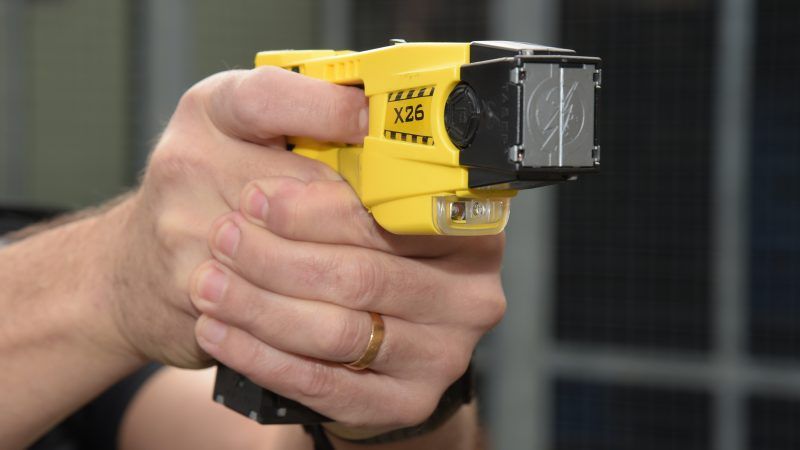Rhode Island's Stun Gun Ban Challenged in Federal Court
Rhode Island is one of only two states that still prohibit civilian stun gun and Taser ownership.

Rhode Island and Hawaii are the only states in the nation that prohibit the ownership of stun guns and Tasers. A new federal lawsuit filed in Rhode Island seeks to scrub the state from that list.
On Nov. 22, plaintiffs Michael O'Neil and Nicola Grasso filed a lawsuit in the United States District Court for the District of Rhode Island challenging the state's ban on "electronic weapons"—devices like stun guns and Tasers. O'Neil is the vice president of the Rhode Island Second Amendment Coalition and Grasso is the former president of the Rhode Island Federated Sportsman's Association. Rhode Island Attorney General Peter Neronha and Rhode Island State Police Col. James Manni are named as defendants in the suit.
O'Neil and Grasso's lawsuit argues that Rhode Island's ban on electronic weapons violates the Second Amendment of the U.S. Constitution because the law is inconsistent with the Supreme Court's rulings in 2008's District of Columbia v. Heller and 2016's Caetano v. Massachusetts, as well as other rulings in state and federal cases. The lawsuit points to Heller's holding that the Second Amendment protects weapons in "common use" (about 200,000 stun guns were in private hands as of 2009) and Caetano's reaffirmation that "the Second Amendment extends… to all instruments that constitute bearable arms, even those that were not in existence at the time of the founding" to argue against Rhode Island's ban.
Caetano dealt specifically with the question of whether stun guns are constitutionally protected weapons under the Second Amendment and whether Massachusetts had the authority to ban them. The suit was filed by Jaime Caetano, who was arrested for possessing a stun gun she obtained to protect herself from her ex-boyfriend. At the time, state law forbade private ownership of stun guns.
The Massachusetts Supreme Judicial Court upheld Caetano's conviction by arguing that the Second Amendment doesn't protect weapons that were not in common use at the time of the Second Amendment's enactment, erroneously citing the Supreme Court's language in Heller. The Supreme Court's decision in Heller had actually rejected the notion that only guns existing during the 18th century fall under Second Amendment protection as "bordering on the frivolous." This, in part, resulted in the Supreme Court unanimously deciding that the Massachusetts Supreme Judicial Court had misapplied the Heller ruling in Caetano's case. Massachusetts subsequently repealed its stun gun ban.
Rhode Island's governmental agencies appear to concede that the state's ban won't hold up in court. Sid Wordell, executive director of the Rhode Island Police Chiefs Association, tells WPRI that his organization recognizes that Rhode Island's electronic weapons ban makes the state an outlier nationally and that they're likely "going to have to legalize them."
Similarly, Providence Public Safety Commissioner Steven Pare told WPRI that he accepts that the Second Amendment protects ownership of stun guns, but expressed his belief that the state should, "be real restrictive [sic] with the persons who can carry these types of devices and where they can carry [them]," stating that he, "wouldn't want to see someone carrying a stun gun which can incapacitate people in banks and government buildings and sensitive areas."
